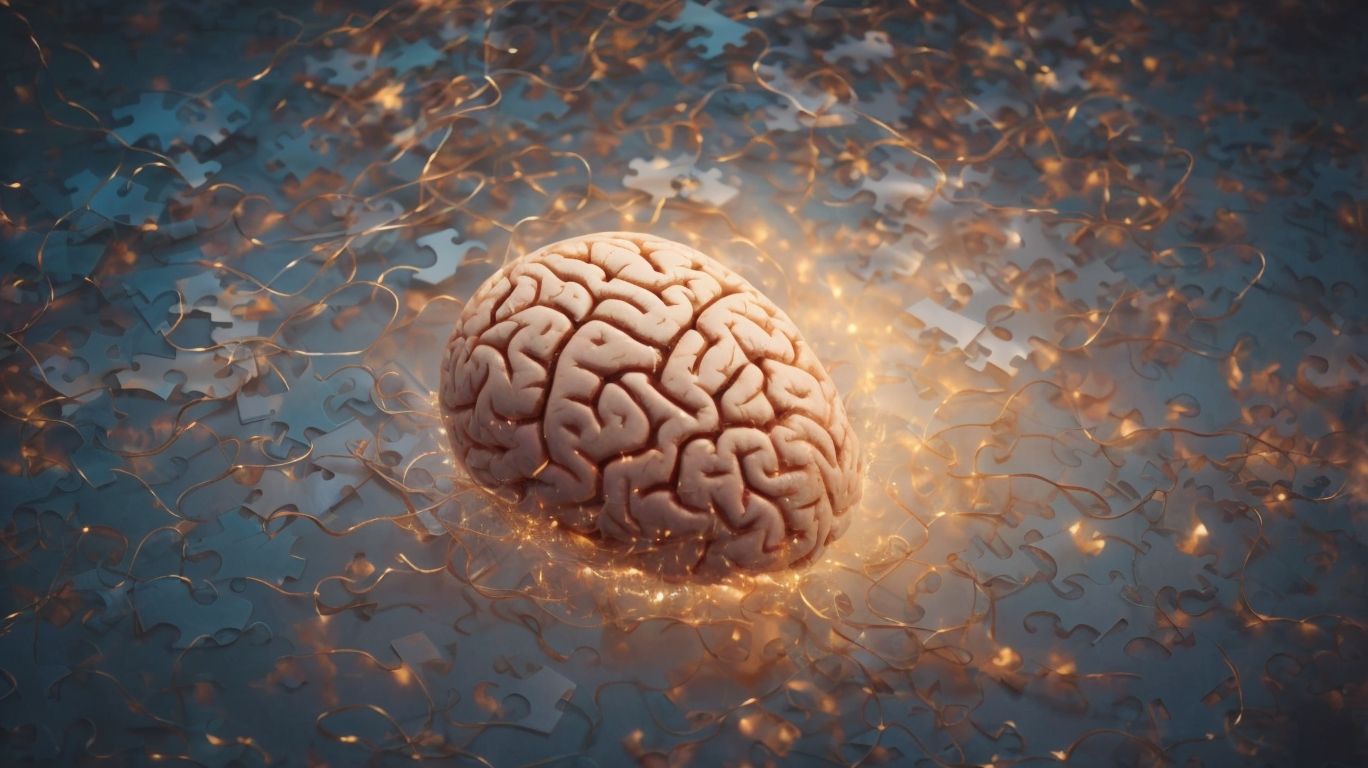Depersonalization is a complex psychological phenomenon that can have a profound impact on an individual’s sense of self. From trauma to mental health disorders and substance use, there are various causes that can trigger depersonalization.
But how does it affect the brain? What are the symptoms to look out for? And most importantly, how can one cope with depersonalization? In this article, we will delve into the intricacies of depersonalization, exploring its causes, symptoms, diagnosis, and coping strategies.
So, let’s unravel the mystery behind depersonalization together.
Contents
- 1 What Is Depersonalization?
- 2 What Are the Causes of Depersonalization?
- 3 How Does Depersonalization Affect the Brain?
- 4 What Are the Symptoms of Depersonalization?
- 5 How Is Depersonalization Diagnosed?
- 6 What Are the Coping Strategies for Depersonalization?
- 7 Frequently Asked Questions
- 7.1 What is depersonalization and how is it related to psychology?
- 7.2 What are the common causes of depersonalization?
- 7.3 How does depersonalization affect a person’s daily life?
- 7.4 Are there any effective coping strategies for depersonalization?
- 7.5 Can depersonalization be treated?
- 7.6 Is depersonalization a permanent condition?
What Is Depersonalization?
Depersonalization is a dissociative disorder that involves feeling detached or disconnected from one’s thoughts, feelings, or reality.
Individuals experiencing depersonalization often describe it as if they are observing themselves from outside their body, as if in a dream-like state. This disconnection can lead to a sense of unreality or feeling like the world around them is distorted or artificial. Symptoms may include emotional numbness, loss of identity, and a distorted perception of time. These feelings can be distressing and disruptive to daily life, affecting relationships, work, and overall well-being. People with depersonalization may also struggle with memory problems and concentration issues.
What Are the Causes of Depersonalization?
Depersonalization can stem from various factors such as trauma, mental health disorders, and substance use or withdrawal, leading to a profound shift in one’s perception and experiences.
When an individual experiences trauma, especially during critical developmental stages, their sense of self can become fragmented, triggering episodes of depersonalization where the world may feel unreal or disconnected.
Mental health conditions like anxiety, depression, or dissociative disorders can exacerbate these feelings, amplifying the detachment from oneself or surroundings.
Substances like cannabis, hallucinogens, or even alcohol abuse can induce depersonalization episodes by altering neurotransmitter levels and distorting reality perception.
Trauma or Stressful Events
Experiencing trauma or stressful events can trigger depersonalization, causing individuals to feel disconnected from their reality and emotions.
Depersonalization is a common defense mechanism that the mind employs in response to overwhelming stressors or past traumas. This dissociative symptom often manifests as a sense of detachment from oneself or one’s surroundings. Individuals may describe feeling like they are observing their own life from a distance, or that their actions are not their own.
Depersonalization can exacerbate existing anxiety and lead to feelings of confusion, fear, and a distorted sense of identity. This state of detachment can significantly impact one’s daily functioning, relationships, and overall mental well-being, causing distress and impairment in various areas of life.
Mental Health Disorders
Various mental health disorders, such as anxiety and depression, can contribute to depersonalization, altering one’s perception of reality and leading to dissociative experiences.
These conditions can greatly impact the everyday life of affected individuals, causing a disconnect between their thoughts, feelings, and actions. Depersonalization often manifests as feeling detached from oneself or observing one’s own actions from a distance. It can blur the lines between what is real and what is perceived, creating a deep sense of confusion and disorientation. Treatment options for depersonalization typically focus on therapy, medication, and coping strategies to help individuals regain a sense of self and reality.
Substance Use or Withdrawal
Substance abuse or withdrawal can induce depersonalization symptoms, causing disturbances in thoughts, emotions, and reality perception.
Depersonalization is characterized by a sense of detachment from oneself, leading to feeling unreal or disconnected from one’s body or surroundings. Individuals may describe it as watching themselves from outside their own bodies. These experiences can be distressing, contributing to heightened anxiety and fear.
Individuals struggling with depersonalization frequently encounter cognitive difficulties, such as memory lapses and difficulties concentrating. These symptoms can exacerbate feelings of disorientation and lack of control, impacting daily functioning and quality of life.
Therapeutic interventions often focus on addressing underlying stressors and cultivating grounding techniques to enhance individuals’ connection to reality. Approaches may include cognitive-behavioral therapy, mindfulness practices, and stress-management strategies tailored to the individual’s needs.
How Does Depersonalization Affect the Brain?
Depersonalization impacts the brain by altering cognitive functions, emotional responses, and the perception of reality, affecting individuals’ mental health and well-being.
When individuals experience depersonalization, it can lead to disruptions in memory, attention, and decision-making processes due to the distortion of their sense of self. This altered state can also result in difficulties with emotional regulation, causing fluctuations in mood stability and responsiveness to external stimuli. The skewed perception of reality can significantly impact an individual’s ability to navigate social interactions and daily activities effectively.
What Are the Neurological Changes During Depersonalization?
Depersonalization leads to notable neurological changes, affecting cognitive processes, emotional responses, and overall mental health.
Depersonalization, a dissociative condition linked to a sense of detachment from oneself and the environment, has intricate effects on the brain. It often disrupts various cognitive functions like memory, attention, and perception, leading to a distorted sense of reality. The altered emotional regulation in individuals experiencing depersonalization can result in numbing of emotions or heightened anxiety levels.
Cognitive behavioral therapy (CBT) is a common therapeutic intervention that aims to reframe maladaptive thoughts and behaviors associated with depersonalization. This form of therapy encourages individuals to recognize and challenge distorted perceptions, fostering healthier coping mechanisms for managing symptoms.
How Does Depersonalization Impact Emotions and Perception?
Depersonalization can distort emotions and perceptions, leading to a sense of detachment from reality and affecting individuals’ emotional well-being.
Individuals experiencing depersonalization often report feeling disconnected from themselves, almost as if observing their own actions from a distance. This disconnection can result in a range of emotional responses, including anxiety, confusion, and a profound sense of emptiness. The altered perception of reality that accompanies depersonalization can create a barrier to seeking help or engaging in therapy.
Therapeutic interventions for depersonalization typically focus on grounding techniques, mindfulness practices, and cognitive-behavioral strategies to help individuals regain a sense of self and reality.
What Are the Symptoms of Depersonalization?
Depersonalization manifests through symptoms such as feeling detached from oneself, experiencing altered reality perceptions, and struggling with emotional responses.
Individuals undergoing depersonalization may describe feeling like they are observing their own actions from a distance, as if watching themselves in a movie.
Others may report a sense of surrealism or disconnection from their surroundings, almost like living in a dreamlike state.
Emotional responses can feel dulled or muted, making it challenging to connect with others or experience joy or sadness fully.
These symptoms can significantly impact mental health, leading to feelings of confusion, anxiety, and isolation, often complicating daily functioning and interpersonal relationships.
What Are the Physical Symptoms of Depersonalization?
Depersonalization may manifest physical symptoms such as dizziness, altered perception of body sensations, and changes in visual processing.
Individuals experiencing depersonalization may also report feeling disconnected from their own thoughts, emotions, or physical movements.
Heightened anxiety and panic attacks could accompany these symptoms, further exacerbating the sense of detachment from reality.
It is not uncommon for those going through depersonalization to describe experiencing time distortion, feeling as though the world around them is unreal or distorted.
What Are the Emotional Symptoms of Depersonalization?
Emotional symptoms of depersonalization include feelings of numbness, emotional detachment, and heightened anxiety responses, impacting individuals’ emotional well-being.
Individuals experiencing depersonalization may describe a sense of detachment from their own emotions, as if viewing them from a distance. This disconnection can lead to a feeling of being emotionally empty or flat, as if the vibrant hues of their feelings have faded to grayscale. The constant state of heightened anxiety often exacerbates these emotions, creating a vicious cycle of detachment and anxiety. The challenges in perceiving reality accurately can intensify these emotional symptoms, making it difficult for individuals to feel truly connected to themselves and the world around them.
How Is Depersonalization Diagnosed?
Diagnosing depersonalization involves evaluating an individual’s symptoms, experiences, reality perception, and emotional responses to determine the presence and severity of the disorder.
During the diagnostic process, healthcare professionals use standardized questionnaires and clinical interviews to assess the individual’s perception of self and surroundings. This evaluation helps in distinguishing depersonalization from other mental health conditions and determines the impact of the disorder on daily functioning.
A thorough exploration of emotions and thought patterns is conducted to identify any underlying trauma or triggers that may contribute to the development of depersonalization disorder. Clinicians may request imaging studies or laboratory tests to rule out any physical conditions that could mimic depersonalization symptoms.
What Are the Coping Strategies for Depersonalization?
Managing depersonalization involves various coping strategies such as therapy, mindfulness techniques, medications, and lifestyle adjustments to address symptoms and improve overall well-being.
Therapy plays a crucial role in depersonalization treatment, especially cognitive-behavioral therapy (CBT) which helps individuals understand and challenge distorted thoughts.
Mindfulness practices, including meditation and deep breathing exercises, can promote self-awareness and grounding techniques. Some individuals may benefit from medication like antidepressants or anxiolytics to manage underlying mental health conditions.
Incorporating healthy lifestyle changes such as regular exercise, sufficient sleep, and a balanced diet can contribute to symptom alleviation and emotional stability.
Therapy and Counseling
Therapy and counseling play a pivotal role in managing depersonalization, aiding individuals in addressing emotional challenges, reality perception, and dissociative experiences.
One of the most common forms of therapy used for depersonalization is cognitive behavioral therapy (CBT). This approach helps individuals identify and challenge negative thought patterns and behaviors that contribute to their symptoms. By developing coping strategies and restructuring their thinking, individuals can gain a better sense of reality and self-awareness.
Emotional regulation is another key aspect of therapy for depersonalization. Through counseling sessions, individuals can learn techniques to manage intense emotions and reduce the frequency of dissociative episodes. This process enables them to build resilience and develop healthier ways of coping with stress and anxiety.
Therapy provides a safe space for individuals to explore and reconnect with their sense of reality. This reality reconnection process involves validating feelings, exploring existential concerns, and finding meaning in one’s experiences. By working with a therapist, individuals can gradually reintegrate themselves back into their environment and regain a sense of self-identity.
Mindfulness and Grounding Techniques
Practicing mindfulness and grounding techniques can help individuals with depersonalization to reconnect with the present moment, manage overwhelming emotions, and foster a sense of stability.
By integrating regular cognitive behavioral therapy practices into their routine, individuals can enhance their emotional regulation capabilities and develop healthier coping mechanisms.
These practices serve as tools for symptom management, allowing individuals to observe their thoughts and feelings without judgment, ultimately leading to greater self-awareness and the ability to challenge negative cognitive patterns.
Incorporating mindfulness techniques like body scans, breathing exercises, and progressive muscle relaxation can facilitate a deep sense of calmness and alleviate the intensity of depersonalization symptoms.
Medications
Medications prescribed for depersonalization aim to alleviate symptoms, manage anxiety, and stabilize mental health, offering individuals support in coping with the disorder.
Common medications prescribed for depersonalization include selective serotonin reuptake inhibitors (SSRIs) such as fluoxetine and sertraline, which help regulate neurotransmitters in the brain linked to mood and stress. Other options may include benzodiazepines like clonazepam for acute anxiety relief and mood stabilizers such as lamotrigine to manage erratic emotions. These medications, when used in conjunction with therapy and lifestyle modifications, can provide comprehensive care for individuals struggling with depersonalization.
Lifestyle Changes
Implementing lifestyle changes like stress management, self-care practices, and healthy routines can support individuals in managing depersonalization symptoms and promoting overall well-being.
Engaging in regular physical activity such as yoga or mindfulness exercises can help reduce stress levels and improve emotional resilience. Prioritizing adequate sleep and nutrition plays a vital role in nurturing the body and mind, aiding in symptom alleviation. Integrating relaxation techniques like deep breathing, meditation, or journaling can enhance self-awareness and provide a sense of give the power toment in navigating depersonalization challenges.
Frequently Asked Questions
Depersonalization is a psychological phenomenon characterized by a feeling of detachment from one’s own thoughts, feelings, and sensations. It is often linked to anxiety, trauma, and other mental health disorders.
What are the common causes of depersonalization?
Depersonalization can be caused by a variety of factors, such as severe stress, trauma, substance abuse, sleep deprivation, and certain medications. It can also occur as a symptom of other mental health disorders, such as anxiety, depression, and dissociative disorders.
How does depersonalization affect a person’s daily life?
Depersonalization can significantly impact a person’s daily life, making them feel disconnected from reality and their own sense of self. It can lead to difficulties with relationships, work, and overall functioning. In severe cases, it may even cause feelings of hopelessness and suicidal thoughts.
Are there any effective coping strategies for depersonalization?
Yes, there are various coping strategies that can help individuals manage depersonalization. These include therapy, medication, mindfulness techniques, stress management, and self-care practices. It is important to work with a mental health professional to find the most effective coping strategies for each individual.
Can depersonalization be treated?
Yes, depersonalization can be treated with the help of therapy and medication. Cognitive-behavioral therapy (CBT) has been found to be particularly effective in treating depersonalization. It focuses on challenging distorted thoughts and behaviors and developing healthier coping mechanisms.
Is depersonalization a permanent condition?
Depersonalization can be a chronic condition for some individuals, but it is not necessarily permanent. With proper treatment, many people are able to overcome depersonalization and reduce its impact on their daily lives. It is important to seek help and support from a mental health professional if depersonalization is causing distress.



